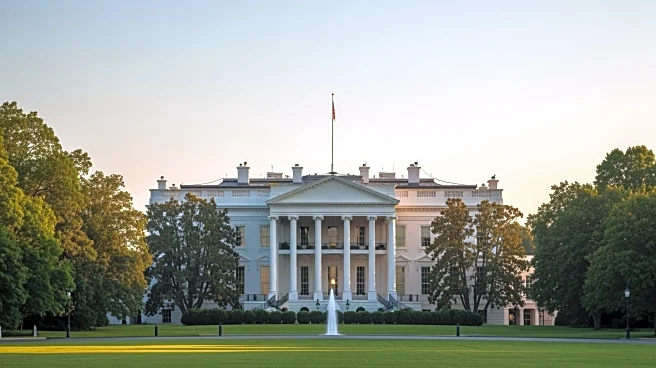What's Happening?
The Trump administration has faced significant resistance from universities regarding a proposed 'Compact for Academic Excellence in Higher Education.' This initiative aimed to offer preferential funding
treatment to universities that comply with certain ideological priorities, including eliminating diversity, equity, and inclusion policies. Despite pressure from the administration, including a call with the White House, six out of nine universities have rejected the offer. The compact was presented as a means to gain competitive advantages for federal and philanthropic benefits, but many institutions argue it undermines the merit-based process for awarding research grants. Universities such as Dartmouth College and the University of Virginia have publicly declined the compact, citing concerns over academic freedom and institutional autonomy.
Why It's Important?
The rejection of the compact by major universities highlights a significant pushback against federal attempts to influence academic policies and priorities. This resistance underscores the importance of maintaining academic freedom and the merit-based nature of research funding. The Trump administration's proposal has sparked debates about the role of government in higher education and the potential impact on diversity and inclusion initiatives. The refusal by universities to sign the compact suggests a broader concern about compromising educational values and self-governance, which could have long-term implications for federal-university relations and the landscape of higher education in the U.S.
What's Next?
As universities continue to reject the compact, the Trump administration may seek alternative ways to enforce its priorities in higher education. The administration has indicated that universities will not lose federal funding for declining the compact, but it remains to be seen how this will affect future interactions between the government and academic institutions. The administration's efforts to influence university policies could lead to further legal challenges and public debates. Additionally, universities may continue to rally support from faculty, students, and alumni to oppose government interference in academic matters.
Beyond the Headlines
The proposed compact raises ethical and legal questions about the government's role in shaping educational policies. Critics argue that the compact's terms could infringe on constitutional rights and academic freedom. The situation also highlights the cultural tensions between conservative and liberal values in academia, as the Trump administration seeks to promote far-right viewpoints. The broader implications of this initiative could lead to shifts in how universities navigate federal funding and policy compliance, potentially affecting the diversity and inclusivity of campus environments.









